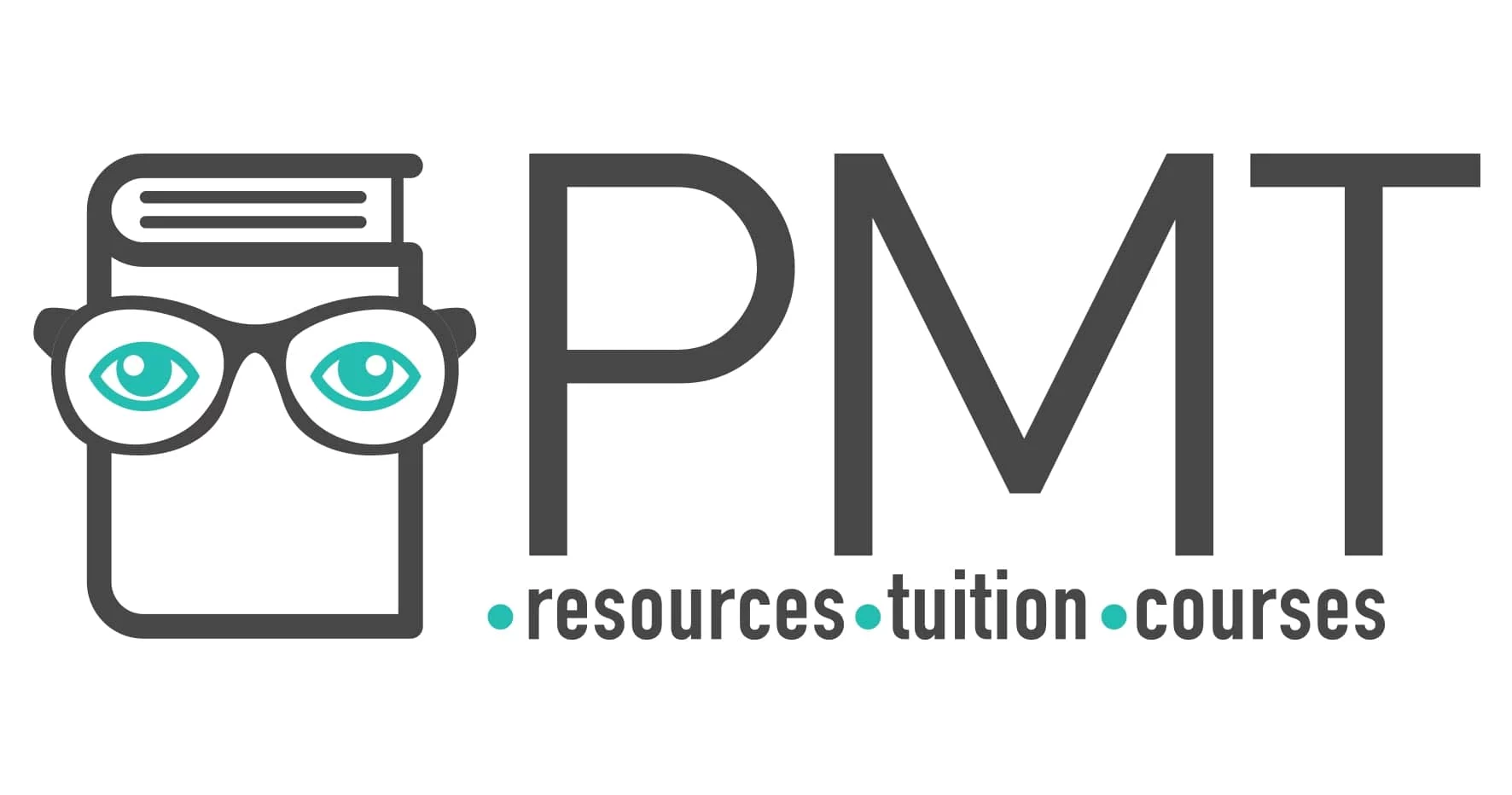UCAS Personal Statement – A Secret to UK University Admissions
The UCAS personal statement – the single document that can make or break your dreams of attending a prestigious UK university. The task of encapsulating your skills, passions, and life experiences into a concise essay can feel daunting. But fear not! Crafting a compelling personal statement is more than possible; it’s entirely within your reach.
In this comprehensive guide, we won’t just scratch the surface with generic tips you’ve seen on every other website. Instead, we’ll delve deep into each aspect of the personal statement, from understanding basic requirements to mastering the art of storytelling. You’ll learn how to make each of your 4,000 characters count, tailor your statement to multiple courses, and let your personality shine through without resorting to clichés.
If you’re ready to transform a blank Word document into a stepping stone to your future, you’ve come to the right place. Let’s embark on this journey together!
What is a UCAS Personal Statement?

The UCAS (Universities and Colleges Admissions Service) personal statement is, in essence, your academic and personal elevator pitch rolled into one. This document is a key component of your university application, acting as a written testament to who you are and why you’re an ideal candidate for the course you’re applying for. It’s also one of the crucial elements for getting accepted into top UK universities, where competition for places can be fierce.
Many students make the mistake of underestimating its impact, treating it as a mere formality. In reality, the personal statement can be a tiebreaker between you and another candidate with a similar academic profile. With just two sides of an A4 paper—or 4,000 characters to be exact—you have a limited canvas to paint a comprehensive picture of yourself. That includes your motivations for applying, the skills and experiences that make you a suitable candidate, and your academic and career aspirations.
While the personal statement is but one part of your overall UCAS application, it’s the part where you get to speak directly to admissions tutors. Unlike standardised test scores or grades, it’s wholly in your control, giving you a unique opportunity to make your voice heard.
Now that you know what a UCAS personal statement is and why it’s important, you may be wondering how to approach it effectively. In the sections that follow, we’ll explore just that—breaking down each element and providing actionable tips to create a standout document.
Writing a compelling UCAS personal statement is a crucial step in securing a place at your desired UK university. It’s your opportunity to showcase your strengths, experiences, and passion for the subject you wish to study. However, alongside a strong personal statement, ensuring you have the necessary qualifications and UCAS points is equally important. To calculate your UCAS points accurately and see how your qualifications measure up to university entry requirements, use our UCAS Points Calculator. This handy tool will help you stay on track and make informed decisions about your academic future.
Why Use Microsoft Word First?
The UCAS explicitly recommends that you draft your personal statement in Microsoft Word before pasting it into their online application form. On the face of it, this might seem like an unnecessary step; however, there are several compelling reasons for adhering to this guidance.
Avoid Timeout Stress

The UCAS online form times out after 35 minutes of inactivity, which can be quite stressful if you’re in the middle of crafting a sentence or contemplating the perfect wording. Drafting your statement in Microsoft Word ensures that you can take your time without fretting over losing your progress.
Spellcheck and Grammar Tools
Microsoft Word comes equipped with robust spelling and grammar check tools. While these shouldn’t be your sole resource for ensuring proper English usage, they do offer a helpful first pass to catch any glaring errors or awkward phrasing.
Word Count and Character Count Tools
Keeping within the 4,000 character limit, including spaces and punctuation, is crucial. Microsoft Word provides an easy-to-use tool for monitoring both your word and character count, helping you to be precise in your writing while ensuring you stay within UCAS guidelines.
Formatting and Organisation
Word offers straightforward formatting tools that allow you to divide your statement into clear paragraphs or sections. This helps in organising your thoughts coherently, making it easier for the admissions staff to follow your argument.
Revision and Version Control
The writing process often involves multiple drafts and revisions. Microsoft Word allows you to save different versions easily, so you can experiment with various approaches or go back to a previous version if needed. This is invaluable when you’re striving for a statement that accurately reflects your skills, experiences, and aspirations.
Collaboration and Feedback
Sharing your draft with teachers, mentors, or trusted family members for feedback is easier when using Word. They can use features like ‘Track Changes’ and ‘Comments’ to provide specific, actionable advice that you can incorporate directly into your statement.
By using Microsoft Word as your initial drafting platform, you’re not just following UCAS recommendations, you’re also availing yourself of tools that can significantly improve the quality of your personal statement.
What to Include in Your Personal Statement?
Embarking on your UCAS personal statement journey can be daunting, not least because you’re provided with a seemingly blank canvas yet constrained by a strict character limit. So, what should you include to make a compelling case for your university application? Here’s a roadmap to guide you.
Academic Achievements and Intellectual Curiosity
Begin by spotlighting your academic achievements and areas where you’ve excelled. But don’t just list your grades; demonstrate your intellectual curiosity and how it makes you an ideal fit for the course you’re applying to.
Relevant Skills and Experience
Universities look favourably upon candidates who bring more than just book smarts to the table. Discuss relevant skills you’ve gained outside of the classroom. Whether it’s teamwork from a sporting endeavour, leadership in a club, or creativity in the arts, these experiences offer a more rounded view of you as an applicant.
Work Experience or Volunteering
If you’ve taken part in work experience, internships, or volunteer work, be sure to mention this. Focus on what these experiences have taught you and how they’ve prepared you for the rigours of university life. For example, did a volunteering stint improve your time-management skills or give you hands-on experience in a field related to your course?
Extra-Curricular Activities
These are your secret weapon to stand out from the crowd. If you’re part of a club, society, or other organisation, discuss how these have shaped you. Have they made you more disciplined, improved your teamwork or leadership abilities, or perhaps kindled a newfound passion?
Career Aspirations
Universities want to produce graduates who will succeed in their respective fields. Thus, having a clear sense of your career aspirations can make your application more compelling. It demonstrates that you’re thinking long-term and see your university education as a crucial stepping stone.
Personal or Financial Circumstances
If there are special circumstances that have influenced your academic journey, like financial hardships or personal struggles, it can be appropriate to include these. However, the focus should be on how you’ve overcome these challenges, displaying traits like resilience and determination.
International Students: Why the UK?
If you’re applying from outside the UK, explaining why you’ve chosen the UK as your study destination can add a unique angle to your personal statement. Perhaps it’s the specific courses offered, the quality of education, or even the culture that attracts you.
By carefully selecting what to include in your UCAS personal statement, you’re not just filling in a form; you’re telling a nuanced story about who you are, what you bring to the table, and why you’re an excellent match for the course and the university.
Customising for Different Courses

One of the trickiest aspects of the UCAS personal statement is that you may be applying to multiple courses, possibly across different universities. Your personal statement needs to be a one-size-fits-all document, yet still uniquely tailored to each programme you’re interested in. Sounds like a paradox, doesn’t it? Fear not, for it’s entirely doable. Here’s how:
Start with Common Ground
Identify the common themes or skill sets that are universally sought-after for all the courses you’re applying to. For instance, critical thinking and problem-solving abilities are qualities most universities prize, no matter the specific course.
Highlight Transferable Skills
If the courses you’re applying to diverge significantly, focus on your transferable skills. Suppose you’re applying for both engineering and business courses. In that case, skills like analytical thinking, teamwork, and leadership are relevant and can be highlighted to suit both disciplines.
Use Course Descriptions as Your Guide
One way to make sure you’re hitting the right notes is to scrutinise the course descriptions from the universities you’re applying to. These often list the skills and qualities they’re looking for in candidates, providing you a template of sorts to base your personal statement upon.
Avoid Naming Specific Universities or Courses
It might seem like a good idea to explicitly mention why you want to attend a particular university or take a specific course. However, given that your personal statement is a blanket document for all your choices, this strategy is ill-advised.
Mention Specific Interests that Align with Multiple Courses
If you have interests or experiences that align well with all your course choices, by all means, include them. For example, if you’re applying to both literature and history courses, discussing your love for storytelling can cover both bases.
Adapt Your Tone and Language
While the content remains largely the same, slight changes in tone and language can make your personal statement feel more aligned with different courses. For example, using more technical jargon might suit science-related courses, whereas a more creative flair could be advantageous for arts and humanities courses.
Be Authentic
Finally, authenticity is key. Universities can usually tell if you’re stretching the truth or trying too hard to be someone you’re not. Your genuine enthusiasm for higher education and the courses you’re applying to will shine through naturally if you stick to your authentic self.
By following these guidelines, you can craft a UCAS personal statement that serves multiple purposes without losing its impact or authenticity. It’s all about finding the right balance and painting a complete picture of you as a multi-faceted candidate.
Discussing Extra-Curricular Activities

Extra-curricular activities are often considered the garnish to the main course of your academic achievements in a UCAS personal statement. While your academic record provides a foundational understanding of your scholastic abilities, your extra-curricular activities offer a lens into your personality, skills, and qualities that aren’t necessarily academic but are still crucial to your character.
Why Extra-Curricular Activities Matter
These activities paint a more comprehensive picture of you as a well-rounded individual. They reveal essential soft skills like teamwork, leadership, time management, and commitment—traits that universities highly value but aren’t explicitly showcased through your grades alone.
Choose Wisely
It can be tempting to list every single activity you’ve ever participated in, but quality trumps quantity. Select activities that resonate most with the courses you are applying for or display skills that are universally valued.
Context Is King
Merely listing your extra-curricular activities won’t suffice; it’s crucial to place them in context. If you’ve been part of a debate team, for instance, explain how it has improved your public speaking and critical thinking skills. Have you participated in sports? Discuss how it has instilled discipline, resilience, and a spirit of teamwork.
Balancing Breadth and Depth
While it’s advantageous to demonstrate a range of interests, diving deep into one or two key activities can be equally beneficial. This depth can show focus and dedication, attributes that can set you apart from other candidates who might have a more scattered approach.
The SMART Method
When discussing each activity, use the SMART (Specific, Measurable, Achievable, Relevant, Time-bound) criteria to add credibility and substance to your experiences. For example, instead of merely stating that you were a member of a charity organisation, specify that you organised a fundraising event that raised £2,000 for a local animal shelter over a 6-month period.
Non-traditional Activities Count Too
Don’t underestimate ‘less conventional’ activities like blogging, coding, or even gaming. These can also demonstrate valuable skills, such as creativity, analytical skills, or strategic thinking. Just make sure to link them back to qualities or skills that are relevant to the course or courses you’re applying for.
Showcase Growth and Learning
Finally, what did you learn from these activities? Did they challenge you in unexpected ways? Or perhaps they reaffirmed your career goals? Use these experiences as opportunities to demonstrate your growth and ongoing journey towards becoming a more enlightened and skilled individual.
By thoughtfully incorporating your extra-curricular activities into your UCAS personal statement, you offer admissions teams an invaluable glimpse into the person you are beyond the grades. In doing so, you make a compelling case for why you’d be a valuable addition to any university course.
Showcasing Relevant Work Experience in Your Personal Statement
Work experience is a fundamental aspect of your UCAS personal statement that can significantly enhance your application. However, it’s not just the fact you’ve had a job or completed an internship that matters; it’s how you present that experience and link it to your academic and career ambitions that makes all the difference.
Why Work Experience Matters
Admissions teams look for students who can balance both academic and real-world responsibilities. Work experience indicates that you have already stepped out of the classroom environment and tested your skills in real-world situations.
Different Types of Work Experience
Remember, work experience isn’t just restricted to corporate internships or part-time jobs. It could be volunteer work, freelance projects, or any other experience where you’ve demonstrated skillsets that are either directly or indirectly relevant to the course you’re applying for.
Tailoring Your Experience to Your Course
Make sure to draw parallels between your work experience and your chosen field of study. If you’re applying for a business course and you’ve worked in a retail position, discuss how this has given you an understanding of customer relations, supply chain, and perhaps even marketing.
Utilising the STAR Method
When detailing your experiences, consider using the STAR method (Situation, Task, Action, Result) to structure your explanation. Describe the situation you were in, the task you were given, the actions you took, and the results you achieved. This formula helps provide a compelling narrative around your experience.
Showcasing Transferable Skills
Even if your work experience is in a field entirely unrelated to your course, you can still make it relevant by focusing on transferable skills. For example, working in a café could demonstrate skills in time management, customer service, and multitasking, all of which are valuable in any study or career path.
Explaining Gaps and Short-term Roles
If there are gaps in your work history or if you’ve had roles that lasted for a short time, be prepared to explain. Whether it was due to focusing on studies, travelling, or any other reason, make sure you present it as an opportunity where you learned something useful.
Quantifiable Achievements
Whenever possible, add numbers to quantify your achievements. If you improved a process that increased efficiency by 20%, mention it. These quantifiable facts provide a concrete dimension to your experiences.
Reflect on What You’ve Learned
Wrap up this section by reflecting on how your work experience has shaped you. Have you learned about what career you want to pursue or not pursue? Did the experience teach you about the kind of work environment in which you thrive? These reflections can add depth to your personal statement and make you more relatable.
By skillfully showcasing your work experience, you not only prove your capabilities but also demonstrate your commitment to succeeding both academically and professionally. It gives you a competitive edge and contributes to making your UCAS personal statement robust and compelling.
Break Your Letter Down
Example Personal Statement:
“Ever since I took part in a community clean-up campaign at age 10, I’ve been passionate about environmental conservation. This zeal led me to choose Environmental Science for my A-levels, sparking an aspiration to study Environmental Engineering at university.”
🔍Why It’s Good: Opens with a personal anecdote and immediately establishes enthusiasm for the field. Sets up the context for the application.
[Body Paragraph 1: Academic Interests]
“My academic journey has been guided by a commitment to sustainable development. This was crystallized during my A-level project on wastewater treatment, where I delved into innovative techniques to purify water more efficiently.”
🔍 Why It’s Good: Discusses academic interests and showcases the applicant’s research skills. Also links to a project to add evidence to claims.
[Body Paragraph 2: Extra-Curricular Activities]“Outside of the classroom, I co-founded my school’s Environmental Club, focusing on local conservation projects. I also volunteered for Clean the Beach, a community service initiative.”
🔍 Why It’s Good: Lists extra-curricular activities that are related to the course. Demonstrates initiative and commitment.
[Body Paragraph 3: Transferable Skills]“Through part-time work at a local café, I’ve honed my communication and teamwork skills, which I believe will be invaluable in group projects and presentations at university.”
🔍 Why It’s Good: Discusses transferable skills gained from unrelated activities. Connects them to how they will be useful in the future course.
Body Paragraph 4: Future Goals]
“My ultimate goal is to contribute to renewable energy solutions. I am eager to learn the engineering and technological skills necessary to make a significant impact on the environment.”
🔍 Why It’s Good: Talks about long-term career goals and how the university course will help in achieving them.
[Conclusion]“I am enthusiastic about the prospect of joining your esteemed Environmental Engineering programme. My passion for the subject, combined with a strong academic background and extra-curricular involvement, makes me a well-rounded candidate for this course.”
🔍 Why It’s Good: Wraps up by reaffirming interest in the course and summarizing the points made.
Crafting an effective UCAS personal statement can be a daunting task, particularly when you have only 4,000 characters to convey your skills, experiences, and aspirations. The key to a well-structured and impactful statement is breaking it down into manageable sections.
Why Breaking it Down is Crucial
The personal statement serves as your written portrait to the admissions panel. Therefore, a well-structured format is crucial for ensuring your points are clear, focused, and easily digestible. Breaking down your statement allows you to allocate space judiciously, ensuring every essential aspect gets the attention it deserves.
Understanding the Structural Basics
The UCAS personal statement essentially comprises an introduction, a body, and a conclusion. While this format may seem basic, it serves as the skeleton around which your more detailed content will be structured.
- Introduction: A compelling opener that introduces you and outlines why you’re passionate about your chosen field of study.
- Body: Consists of sub-sections that discuss your academic background, work experience, skills, and other relevant aspects that make you a strong candidate for the course.
- Conclusion: A succinct closing that summarises your statement and leaves a lasting impression on the reader.
Tackling One Section at a Time
Once you’re aware of the basic structure, focus on completing one section at a time. This approach prevents you from feeling overwhelmed and enables you to devote quality time to each part.
Using Subheadings for Clarity
While the UCAS system doesn’t allow for formal subheadings, you can still use transitional sentences to signify a new section or topic. This strategy helps to guide the reader through your narrative.
Word Count and Character Limit
Always keep an eye on your word count and character limit, making adjustments as needed. Each section should be balanced; a 2,000-character introduction followed by a 500-character body will seem uneven.
Iterative Drafting
Don’t expect to get it right on the first try. Writing, reviewing, and revising are part and parcel of crafting a top-notch personal statement. An iterative approach will help you refine your language, improve your structure, and strengthen your argument.
Seeking Feedback
Once you’ve broken down your statement and drafted your sections, seek feedback from teachers, mentors, or family members. Their insights can be invaluable in refining your text and ensuring it’s well-rounded.
By breaking down your UCAS personal statement into its core components and tackling each one with focus and precision, you simplify the writing process. Not only does this make the task less intimidating, but it also helps to produce a final product that is clear, coherent, and compelling.
Drafting and Redrafting

A successful UCAS personal statement is rarely the product of a single draft. Instead, it evolves through a thoughtful cycle of drafting, redrafting, and proofreading. Below, we explore the key considerations during this crucial phase.
The Importance of Multiple Drafts
Creating multiple drafts may seem laborious, but it’s a critical step in refining your personal statement. Each draft allows you to hone your narrative, perfect your language, and further clarify your points, making your statement stronger with each iteration.
Starting with a Rough Draft
Your first draft is your playground; it doesn’t have to be perfect. The aim is to get your ideas down on paper without worrying too much about character limits or stylistic flourishes. Include all the points you want to make, knowing full well you’ll be revisiting and revising them later.
Assessing Your First Draft
Once your first draft is complete, set it aside for a bit. Giving yourself some time away from the text allows you to approach it later with fresh eyes. On your return, assess the draft critically, focusing on:
- Overall structure and flow
- Relevance of included content
- Language and tone
- Adherence to character limit
Prioritising Content in Subsequent Drafts
As you move from your first to subsequent drafts, you’ll need to start prioritising content. Not everything from your rough draft will make the final cut. Decide which points are most compelling and relevant to your application and focus on elaborating those.
Seeking External Feedback
After your second or third draft, seek external feedback from trusted sources like teachers, mentors, or family members. Fresh perspectives can offer invaluable insights that you might have overlooked.
The Final Draft
The final draft should be a well-balanced, clear, and impactful statement that adheres to UCAS’s character limits. By now, your text should be free of grammatical errors and spelling mistakes, and it should closely reflect your skills, experience, and aspirations.
Proofreading and Fine-Tuning
Even your final draft needs a thorough proofread. Spelling, punctuation, and grammar need to be impeccable. If possible, employ software tools to check for these, but also manually read your statement several times—preferably aloud—to catch any lingering errors or awkward phrasings.
Saving and Reviewing
Keep a saved copy of each draft and the final version. This not only serves as a backup but also provides a resource you can refer to during potential interviews or further application steps.
In summary, the drafting and redrafting process is not to be rushed or overlooked. The multiple drafts you create and refine are stepping stones towards a well-rounded, compelling personal statement that will catch the eye of university admissions panels.
Demonstrating Enthusiasm
Demonstrating enthusiasm in your UCAS personal statement is vital, yet it’s an area where many applicants stumble. The challenge lies in authentically communicating your zeal for the chosen course while maintaining a professional tone. Below, we’ll explore effective ways to inject enthusiasm into your statement.
The Importance of Genuine Enthusiasm
Firstly, it’s essential to note that admissions tutors can easily distinguish between genuine enthusiasm and an exaggerated display. A truly passionate account of why you want to study a particular subject will always stand out more than generic statements.
Methods for Demonstrating Enthusiasm
- Personal Anecdotes: Share experiences that have led you to develop a keen interest in your field. Maybe a book captured your imagination, or perhaps a specific event shaped your academic interests. These stories make your enthusiasm tangible.
- Course-Specific Details: Refer to specific modules, projects, or aspects of the course that excite you. The more specific you are, the more convincing your enthusiasm will appear.
- Past Achievements: Discuss past accomplishments related to the field to show your proactive approach. Have you won a related competition or undertaken a significant project? Make sure to share it.
- Future Goals: Clearly outlining your career ambitions can be a potent way to demonstrate your commitment and enthusiasm for the subject. It shows that you see the course as a stepping stone towards a fulfilling career.
- Active Engagement: Mention any relevant journals, podcasts, or seminars you follow. This indicates an ongoing commitment to understanding your field outside the academic curriculum.
Balance is Key
While enthusiasm is essential, remember to strike a balance. Your personal statement shouldn’t solely be an emotional account of your passion for the subject; it should also provide concrete examples that demonstrate this enthusiasm in a practical sense.
Avoid Overused Phrases
Steer clear of clichés like “I’ve always been passionate about…” or “Ever since I was young, I’ve loved…”. These statements are overused and rarely convincing. Instead, use personal experiences to show your enthusiasm.
Enthusiasm and Relevance
The enthusiasm you express must be directly related to the course for which you are applying. This not only underscores your genuine interest but also highlights your awareness of what the course involves.
In summary, genuine enthusiasm can set you apart in a sea of applicants. Be specific, be personal, and most importantly, be yourself. Your enthusiasm is a testament to your fit for the course, so let it shine through in your UCAS personal statement.
What to Avoid in Your Personal Statement
Navigating the do’s and don’ts of crafting a compelling UCAS personal statement can be a daunting task. While it’s crucial to demonstrate enthusiasm, skill, and aptitude, there are also pitfalls you must conscientiously sidestep. Below, we outline some key elements to avoid in your personal statement.
❌ Mentioning Specific Universities
While it might seem beneficial to talk about why you are excited about particular institutions, remember that your UCAS personal statement is sent to all the universities you apply to. Mentioning one may not only limit your options but also put off other institutions.
❌ Overuse of Humour
While a light touch can sometimes make your statement more engaging, excessive humour or jokes that could be misinterpreted are best avoided. The admissions team may not share your sense of humour, and it’s a risk that’s generally not worth taking.
❌ Clichés and Overused Phrases
Phrases like “I’ve always been passionate about…” or “From a young age, I’ve always been interested in…” are overused and can appear insincere. Admissions tutors read thousands of statements, so originality is more likely to catch their eye.
❌ Arrogance and Exaggeration
Confidence is good, but avoid coming across as arrogant or exaggerating your achievements. Claims like “I’m the best at…” not only reflect poorly on your character but are also hard to substantiate.
❌ Plagiarism
UCAS uses a Similarity Detection Service that utilises the Copycatch system to compare your statement against a comprehensive library of statements. It’s vital to ensure that the work you submit is your own.
❌ Rambling and Lack of Structure
While you have limited space, make sure every sentence serves a purpose. Avoid going off on tangents and stick to a well-planned structure that efficiently communicates why you’re an ideal candidate for the course.
❌ Negativity or Excuses
If there were obstacles or difficulties in your academic journey, it’s better to frame them as challenges you’ve overcome rather than excuses for poor performance. Negative language can cast a shadow over your application, regardless of your qualifications.
❌ Ignoring Course Requirements
Failing to discuss the course specifics or neglecting to relate your skills and experiences to the course is a missed opportunity. Your statement should make clear why you’re not only a good student in general but also why you’re a good fit for the course you’re applying for.
❌ Grammatical Errors and Typos
Spelling and grammar mistakes not only disrupt the flow of your statement but also call into question your attention to detail. Always proofread multiple times and consider asking others to review your statement as well.
In summary, avoiding these common pitfalls will put you in a strong position to create a personal statement that genuinely reflects your abilities and enthusiasm for your chosen course.
Using Online Resources Wisely
In the digital age, the internet offers a treasure trove of resources that can be a significant asset when you’re crafting your UCAS personal statement. However, it’s crucial to use these tools judiciously to ensure that your statement remains unique and authentic. Here are some guidelines for making the most of online resources.
Templates and Statement Builders
Several websites and platforms offer personal statement templates or even builders that guide you through the process. These can be a helpful starting point but should never be relied upon entirely. Your statement needs to reflect your personal experiences and aspirations, something a template can’t fully capture.
Online Courses and Webinars
Many organisations offer free or paid courses that guide you through writing a personal statement. These can provide valuable insights, but make sure you’re applying what you’ve learned to your unique situation, rather than regurgitating generic advice.
Online Examples
Looking at successful personal statement examples can be inspiring and offer a sense of the style and content that work well. However, be cautious not to lift phrases or sentences from these examples. Plagiarism is easily detected and will compromise the integrity of your application.
Editing and Proofreading Services
Some students opt to use online editing or proofreading services. If you choose this route, make sure the service is reputable. Also, review the changes they’ve suggested carefully to ensure they maintain your original voice and intent.
Discussion Forums and Social Media
Sites like Reddit, Quora, or specialised educational forums such as TSR can offer peer-to-peer advice and feedback. While this can be valuable, bear in mind that the individuals giving advice may not be experts, and their guidance should be taken as a part of a broader approach to crafting your statement.
Educational Blogs and Articles
Educational Blogs and articles can offer nuanced insights into what admissions tutors are looking for, as well as tips on structure, language, and content. Just remember, the best practice is to amalgamate different pieces of advice to tailor a statement that is uniquely yours.
AI and Automated Tools
Some advanced writing platforms employ AI to provide grammatical corrections and stylistic suggestions. While these tools can be incredibly useful for polishing your statement, they can’t replace the nuanced understanding and strategic approach that come from human input.
Fact-Checking and Credibility
When utilising online resources, it’s vital to cross-reference the information to ensure its credibility. Make sure you’re consulting sources that are current and respected within the field of higher education.
Data Protection
Be wary of sharing personal information or your full draft online, especially on platforms that aren’t secure. Your personal statement is a sensitive document that should only be shared with trusted individuals and platforms.
By using online resources wisely, you can enrich and polish your UCAS personal statement without sacrificing its authenticity or individuality.
International Students

International students face a unique set of challenges when applying to UK universities through UCAS. From cultural nuances to language barriers, there’s much to consider. This section aims to offer some tailored advice for international applicants crafting their UCAS personal statements.
Why the UK?
Admissions tutors are keen to understand why you’ve chosen the UK as your study destination. Your personal statement should make clear what attracts you to UK higher education. This could range from the reputation of UK universities and the courses they offer, to specific research opportunities that are unavailable in your home country.
English Proficiency
Mention any English language tests, courses, or qualifications you’ve completed. Highlight how your proficiency in English will enable you to succeed in a UK academic setting, not merely as a requirement for admission.
Cultural Adaptability
Show that you are aware of the cultural differences you may encounter and that you are open to embracing these. Whether you’ve had previous international experiences or are looking forward to your first, explain how these will help you adjust to life in the UK.
Financial Preparedness
If applicable, briefly mention how you plan to finance your studies. Whether it’s through scholarships, savings, or educational loans, a short statement on this can underline your seriousness and preparedness.
Transferrable Skills
International students often bring diverse perspectives and a wealth of unique experiences. Highlight the transferable skills you’ve gained from living or studying in a different cultural context and how these will contribute to the university community.
Legal Requirements
While you don’t need to go into detail about visa processes, you can mention if you have or are in the process of securing a student visa as a sign of your commitment and readiness.
Academic References
Your academic background may be based on a different educational system. Use your personal statement to bridge any gaps that UK admissions tutors might not be familiar with. Provide context if your academic achievements might appear unusual or are not immediately relatable to UK norms.
Networking and Future Goals
Admissions tutors appreciate students who are looking at the bigger picture. Discuss your career ambitions and how studying in the UK is a vital step towards achieving these goals. If possible, mention how you plan to utilise the UK’s networking opportunities, research facilities, or career services.
Personal or Social Reasons
Sometimes there are personal or social reasons for choosing to study abroad, such as familial aspirations or the wish to experience life in a diverse, cosmopolitan setting. While this should not dominate your statement, a brief mention can provide a more comprehensive picture of your motivations.
In sum, as an international student, your personal statement should not only meet the general UCAS requirements but also address your unique status, offering a compelling narrative that sets you apart from domestic applicants.
Addressing Personal or Financial Circumstances
When crafting your UCAS personal statement, you may wonder whether to include personal or financial challenges you’ve faced. This is a sensitive area, but if such circumstances have had a substantial impact on your academic performance or life experiences, it could be beneficial to mention them. Here’s how to do it appropriately.
Deciding What to Include
Firstly, decide if your personal or financial circumstances are relevant to your application and would add context to your academic record. These could range from dealing with family difficulties, financial hardships, or health issues that may have affected your grades or extra-curricular involvement.
Framing it Positively
Although you’re discussing challenges, aim to frame these experiences positively. For example, if financial constraints limited your access to educational resources, discuss how this has made you resourceful or driven to succeed despite obstacles. The key is to focus on how you’ve overcome these issues or what they’ve taught you, rather than dwelling on the difficulties themselves.
Be Specific but Brief
While it’s essential to give a clear picture of your circumstances, try to be as succinct as possible. Remember, you have a limited number of characters and lines, and you want the bulk of your statement to focus on your academic and extracurricular achievements.
Provide Context for Academic Performance
If your personal or financial circumstances have had a direct impact on your academic performance, it’s crucial to provide this context. Doing so helps admissions tutors understand any irregularities or gaps in your academic history, and it could make a significant difference in how your application is evaluated.
Verification
Keep in mind that universities may require verification for any claims you make about personal or financial hardships. Make sure you are prepared to provide evidence, whether that’s medical records, financial documents, or reference letters, to substantiate your statements.
Addressing the Future
After outlining the challenges you’ve faced, it might be useful to mention how you intend to manage these circumstances while at university. This shows admissions tutors that you’re not only aware of the challenges but have a plan in place to address them.
Use Discretion
Finally, use your judgement when including sensitive personal or financial information. Ensure it serves to strengthen your application rather than divert attention away from your qualifications and skills. If in doubt, seek advice from teachers, career advisors, or other trusted individuals who are familiar with the UCAS application process.
Incorporating personal or financial circumstances into your personal statement can offer admissions tutors a fuller understanding of you as a candidate. However, it’s vital to approach this carefully, ensuring it complements the rest of your application.
Conclusion
By now, you should have a comprehensive understanding of what goes into crafting an exceptional UCAS personal statement. But knowing and doing are two different arenas. The path from an idea to a fully-fledged personal statement can often be a labyrinth of self-doubt, second guesses, and the ever-daunting blank page. It’s not merely about narrating your life story or academic achievements; it’s about painting a vivid, multidimensional portrait of who you are and who you aim to become.
If you find yourself standing at the crossroads, unsure of how to proceed, allow me to introduce a game-changing solution: Edumentors. This isn’t just another online tutoring platform; it’s your backstage pass to an impeccable personal statement. The tutors at Edumentors offer an excellent service tailored to your unique needs, whether that means crafting your statement from scratch or meticulously refining your existing work. Their expertise will bring your application to life by focusing on the details that really matter. Plus, they’re well-versed in British academic standards, ensuring that your statement not only shines but also resonates with UK admissions tutors.
The journey to higher education is a defining one, and your UCAS personal statement is more than a ticket to admission—it’s a declaration of your ambitions, a testament to your resilience, and a glimpse into your potential. So why leave it to chance? With Edumentors, you’re not just investing in a document; you’re investing in your future. Elevate your statement from good to extraordinary, and let your application be the one that sets the gold standard.











